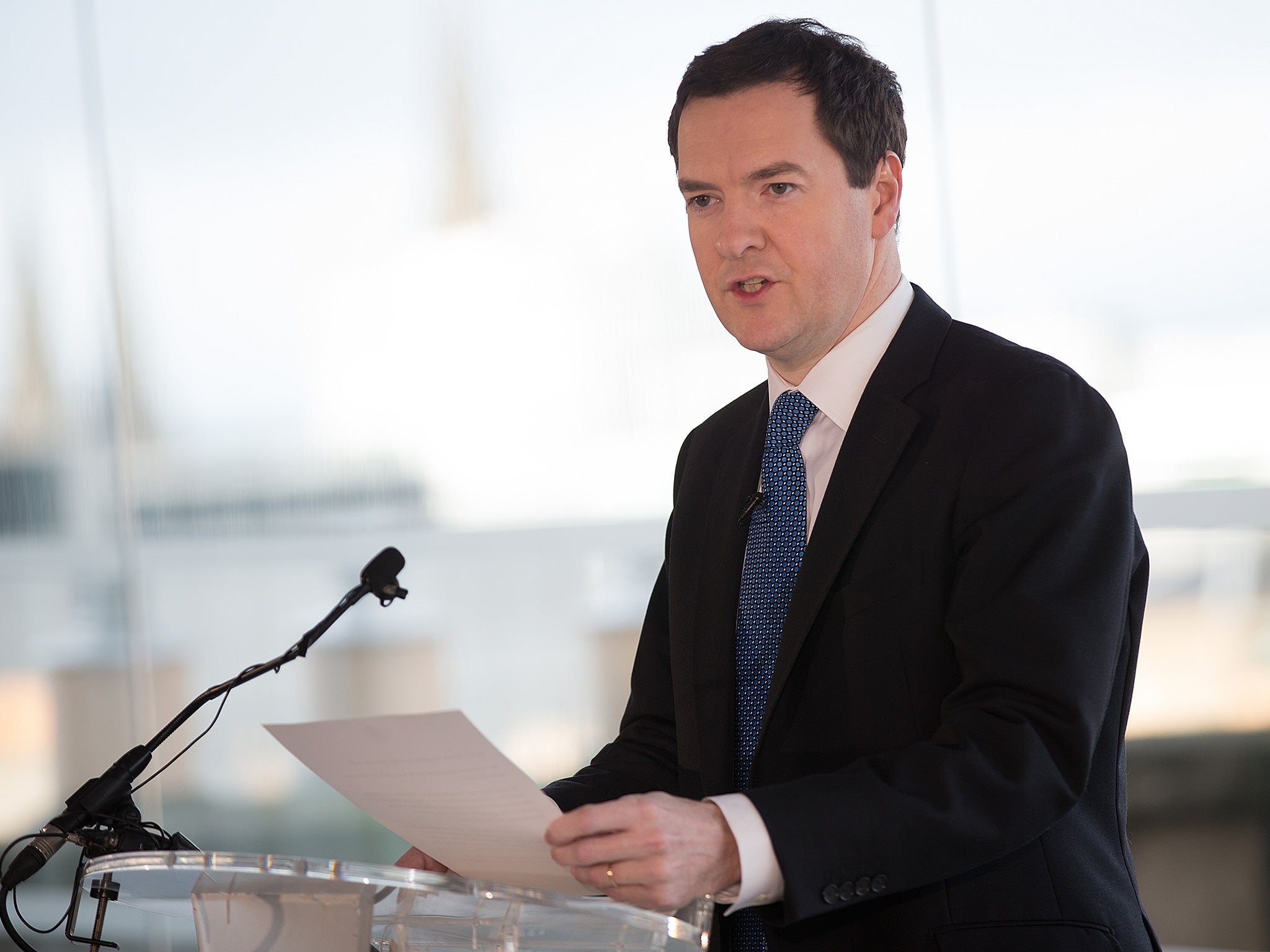'Jobs miracle' powers on as George Osborne wins praise from IMF's Christine Lagarde
Forecasts from the IMF’s staff earlier this week were less optimistic about growth and tax revenues over the next five years than the OBR

Britain’s “jobs miracle” powered on in March but wage growth showed signs of a slowdown, according to the final employment report from the Office for National Statistics before the general election.
The mixed news came after George Osborne won the endorsement of the managing director of the International Monetary Fund, Christine Lagarde, for the Coalition’s handling of the economy in recent years. “It’s obvious that what happened in the UK actually worked” said Ms Lagarde, speaking on a panel alongside Mr Osborne at the IMF spring meeting in Washington.
Forecasts from the IMF’s staff earlier this week were less optimistic about growth and tax revenues over the next five years than the UK’s Office for Budget Responsibility. But Ms Lagarde stressed that the UK is “holding strongly” compared to much of the rest of the world.
The ONS said that the UK created 248,000 new jobs in the three months to February, taking the 16-14 employment rate to a record high of 73.4 per cent. The number of vacancies also hit a new record of high of 743,000 – indicating a buoyant jobs market.
The jobless rate also fell by 76,000, taking the overall unemployment rate down to 5.6 per cent, the lowest since June 2008. “We are living through a jobs miracle brought to you by a Conservative government” said David Cameron.
The Labour leader Ed Miliband criticised the quality of many of the jobs that have been created under the Coalition. “Too often jobs in our country are low-paid, low-skilled and insecure” he said. However, the latest figures showed that 80 per cent of the net new jobs created over the past year were full-time – and none were self-employed.
But there were also disappointing signs of a slowdown in pay growth in the latest figures, with average total pay growth for the three months to February falling to 1.7 per cent, down from 1.9 per cent previously. Looking at the private sector alone, pay growth also slowed to 2 per cent, down from 2.2 per cent previously.
With consumer price index growth falling to zero in February, average pay growth is now firmly positive in inflation-adjusted terms, confirming real pay is rising after five years of relentless monthly declines. And private sector regular pay, excluding bonuses, rose by 2.6 per cent in February, the best performance in four years. Even so, the rate of nominal pay growth remains well below pre-financial crisis rates of around 4 per cent.
“With the traditional relationship between unemployment and pay growth looking ever more broken, there seem to be good reasons to believe that the UK will continue to see further falls in unemployment without a spike in pay rises” said Martin Beck of the EY Item Club.
In Washington, Mr Osborne also won praise from the German Finance Minister, Wolfgang Schauble, who was appearing on the same IMF panel. “The UK has done a very good job in the past few years and Osborne has a very good plan for the future” he said.
The backing of Ms Lagarde will be especially gratifying for the Chancellor since it comes almost two years after the IMF’s chief economist Olivier Blanchard said that the UK’s programme of cuts at a time of weak growth was “playing with fire”. At that time the Fund urged the Coalition to slow down its fiscal consolidation for the sake of growth.
Subscribe to Independent Premium to bookmark this article
Want to bookmark your favourite articles and stories to read or reference later? Start your Independent Premium subscription today.

Join our commenting forum
Join thought-provoking conversations, follow other Independent readers and see their replies